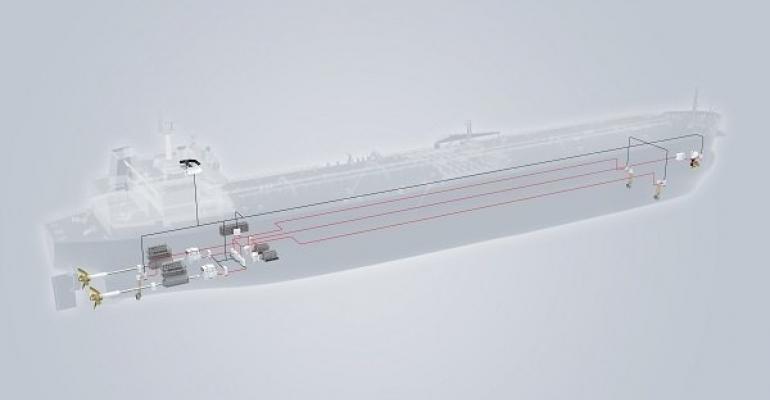The two 125,000dwt specialist DP2 offshore loading shuttle tankers are set to be delivered in 2019 and will transport oil from the Statoil fields on the Norwegian and UK continental shelves to land-based terminals.
“These state-of-the art tankers will have a service life of up to 30 years, operating in the harsh winter conditions of the North Sea. They need to be robust, competitive, capable of meeting anticipated environmental regulations and prepared for new energy sources. With ABB’s solutions on board, these tankers will be future-proofed for technology and regulations for the years to come,” said ABB Marine and Ports md Juha Koskela.
The tankers will feature an extensive range of ABB’s power and automation solutions, including the award-winning power distribution system Onboard DC GridTM, tailored to the needs of the next generation of vessels. The power system is highly configurable and especially well suited to the integration of variable speed generators, energy storage and new energy sources such as fuel cells.
A combination of ABB’s integrated power and automation systems will enable the crew to operate the vessels’ steaming and DP operations at the lowest possible specific fuel consumption, contributing to annual fuel savings of 11% to 12%, ABB said. According to the company, a shuttle tanker of similar tonnage would normally use 8,000-9,000 tons of fuel a year, while ABB’s solution can contribute to annual fuel savings of up to 1,000 tons.
The main and auxiliary engines of the tankers will also have a dual-fuel option, which will allow them to operate on liquefied natural gas (LNG), as well as traditional fuel.
In addition, the vessels will also enjoy the benefits of having the ABB Ability™ Marine Remote Diagnostic System on board, which can help reduce on-call visits of service engineers up by to 70%, and maintenance costs up to 50%, ABB said.
“It is clear that the next generation of ships – electric, digital, and connected – spells a bright future for DC-based electric propulsion,” concluded Global Product Manager for Onboard DC Grid, ABB Marine & Ports John Olav Lindtjørn
Copyright © 2024. All rights reserved. Seatrade, a trading name of Informa Markets (UK) Limited. Add Seatrade Maritime News to your Google News feed.


